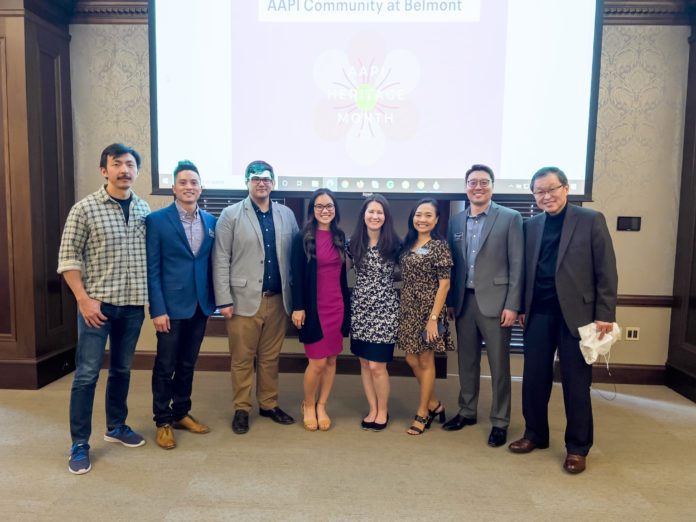This April marked the inaugural celebration of Asian American Pacific Islander (AAPI) month at Belmont. Although typically celebrated in May, in order to fit the academic calendar, campus events and celebrations were held in April.
Meant to celebrate the history and contributions of the Asian American and Pacific Islander communities, the month consisted of events that celebrate the rich diversity and cultural expressions of AAPI history as well as addressing the rise of anti-Asian racism since the start of the pandemic.
“The organized efforts at Belmont started last year following the Atlanta spa shooting that claimed the lives of eight people, six of whom were Asian women,” said Professor of Religion Dr. Gideon Park. “Our student organization, the Asian American Association, held a vigil while faculty organized a roundtable discussion on the dramatic increase of anti-Asian racism. With the help of then-Faculty Senate President Dr. Amy Crook, the senate approved a motion to officially recognize April as AAPI Heritage Month at Belmont University.”
Park enlisted the help of HOPE Council member Phavina Akhom, Asian American Association member Emma Feland, Drs. Sean Yoo and Yang He from the College of Business, Dr. Kristi Oshiro from the College of Liberal Arts and Tola Pokrywka from the College of Theology.
The committee partnered with Asian Studies, University Ministries, Teaching Center and others to host chapels, speakers and other events centered around fostering a greater awareness of issues that face AAPI students at Belmont.
Some of the events included:
- Behind the Scenes: The Surprising Realities of Missionary Life in Asia
- Antiracism and the Marginalization of Asian Americans – Teaching Center Lunch, Dr. Jonathan Tran
- Narrating the Contemporary Chinese Diaspora in the U.S.
- Film Viewing: “American Dreams in China”
- The Sadness of Viewing Cherry Blossoms by a River: A Year in Japan, Read by Dr. David Flynn
“We hope to do away with common stereotypes of Asians as the model minority or perpetual foreigners,” said Park. “We hope there is a greater appreciation for other forms of cultural diversity and more support for all students of color.”



